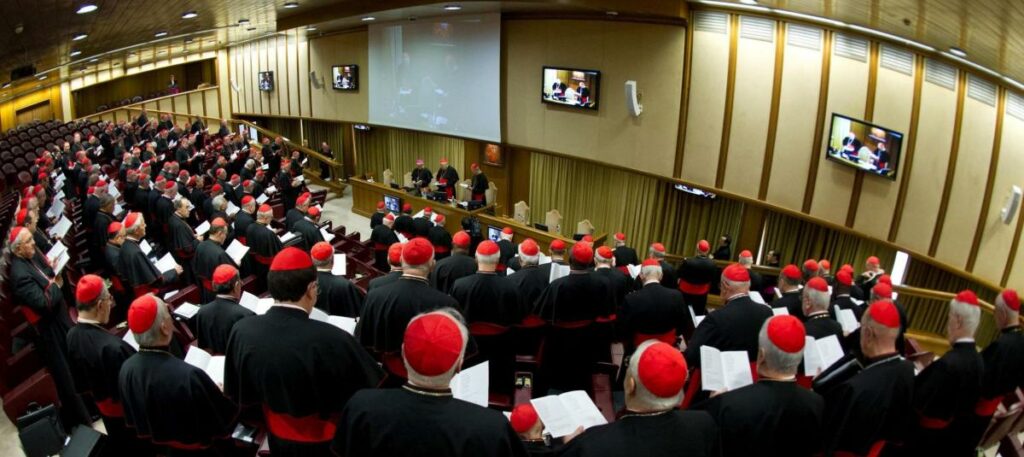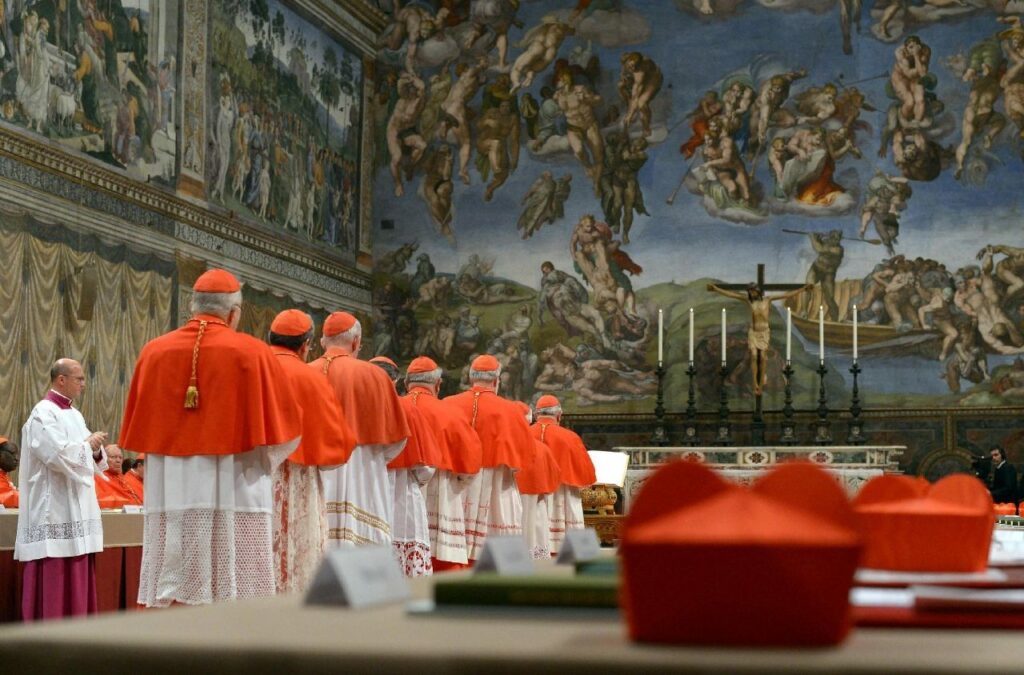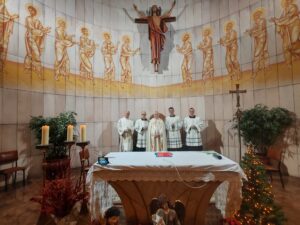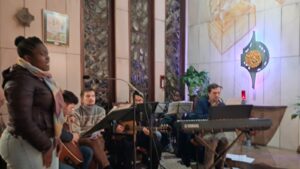
The entry of the cardinals into the Sistine Chapel is a time of waiting, of mystery, to discern the servant of God’s servants. It is a highly spiritual liturgical moment.
While Father François LAPOINTE omv, rector of our sanctuary, advisor and general bursar of his community, is in Rome for one of two functions, he will also be attending the mass celebrated by all the cardinals at 10am on May 07, in preparation for the election of the future successor to the Apostle Peter. An important moment for him and for us all.
Paolo RUFFINI, journalist for Vatican News, writes on May 06, 2025 about this conclave event: “It so happens that in this period of waiting, everyone is wondering who will be the 267th bishop of Rome. Everyone, even if they are physically excluded from the place where the successors of the apostles turned cardinals, gathered and kept in the secrecy of a chapel, will choose the servant of God’s servants, called to lead the Church.
Servant. Servant of the one people of which Peter was and always will be a part, even after he has been called to lead them. Servant. And therein lies the mystery. How can a servant be the leader of a people? Of a Church? A question Jesus answered in words we still struggle to understand today: “As you know, those who are regarded as rulers of the nations command them as masters; the great make them feel their power. Among you, it must not be so. Whoever wishes to become great among you will be your servant. Whoever wishes to be first among you will be slave of all: for the Son of Man did not come to be served, but to serve, and to give his life as a ransom for many.” (Mk 10:42-45).
To serve. This is what Peter’s successors are called to do, to lead the Church. This paradox is disorienting. It confuses the media and the many centers of power, large and small, around the world, who wonder about the identity and the name that the chosen one will choose; and who perhaps even try to influence the decision, by elaborating scenarios and interpretations that seem to be written in the sand.

“Extra omnes!” “Out, all of you!“. This rule disrupts this time of waiting, when even the cardinals (the people of God awaiting their shepherd) are called upon to enter into the mystery; and to leave not only everyone else, but everything outside the Sistine Chapel: that is, themselves, their thoughts, their reasoning; and to empty themselves completely to make room only for the Spirit, for a dynamic that transcends them, and for the mystery of Peter. A mystery that entrusts us with a certainty.
Peter is the fisherman to whom Jesus promised that evil would not prevail: “You are Peter, and on this rock I will build my church, and the power of death will not prevail against it. (Mt 16:18). He is the Apostle for whom the Son of God, in entrusting his Church to him, prayed to the Father with a special recommendation. That he would support him, carrying on his shoulders a burden that would otherwise be too heavy.
Peter is a man sustained by a prayer that has spread through time and history, to his successors and to us today. A concrete, special prayer: that his faith may never fail in the face of the trials he will have to face, so different from and so similar to those of our age, secularized, divided, polarized, confused, wrathful; full of the desire to command and poor in love, incapable of understanding the value of service and the common good, swollen with fragile certainties and false truths, imbued with resentment more than mercy, so often desiring vengeance more than forgiveness: “Simon, Simon, behold, Satan has claimed you to sift you like wheat. But I have prayed for you, that your faith may not fail. So when you return, strengthen your brothers.” (Lk 22:31-32).

Peter is a mystery of mercy and love, of communion and listening. A fisherman who makes a mistake in his calculations, who spends a troubled night at sea without catching a single fish, who then casts his nets on the other side, relying solely on the words of a stranger, and who finally understands that the interlocutor is a man who has no choice but to follow him; to understand that his interlocutor is his Master.
Peter is a forgiven sinner: he is the chosen one who, before rejoicing, wept bitterly after betraying. Like Judas. He wept. In his tears lies all his mystery. And therein lies the mystery of the Church. These tears are perhaps the keys to the Kingdom. They are the keys to Peter and his mystery: a fragility that is powerful precisely because it does not shine with its own light. A rock even if he wasn’t. Which, for this very reason, confirms us all in the faith.”



